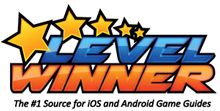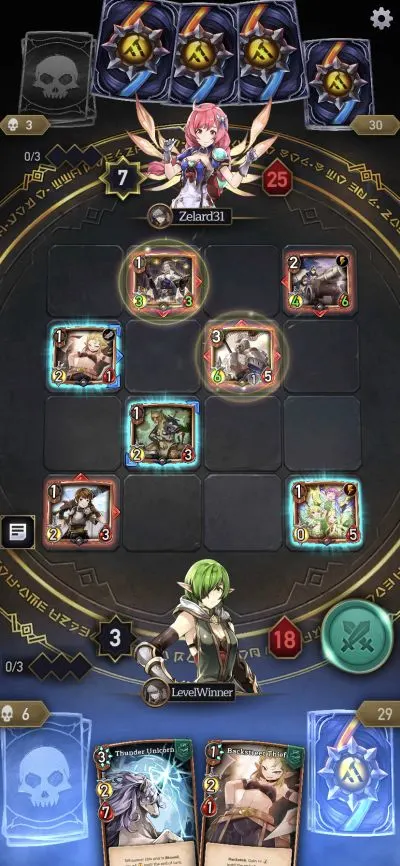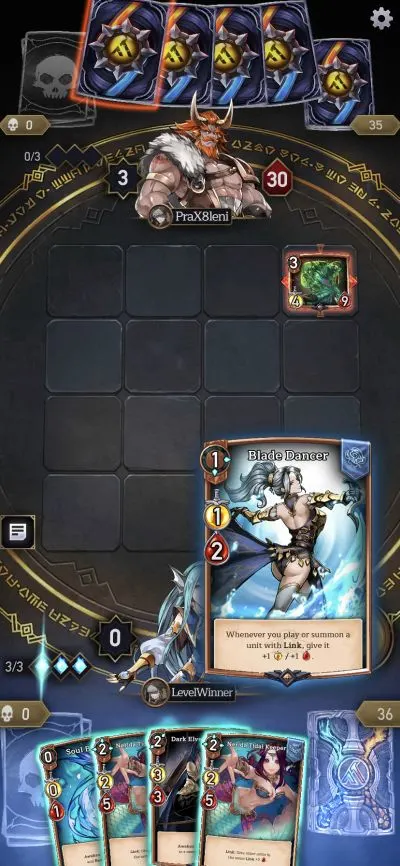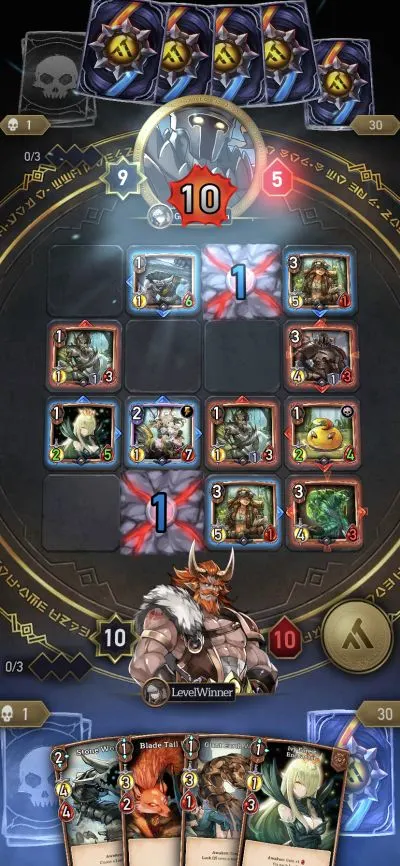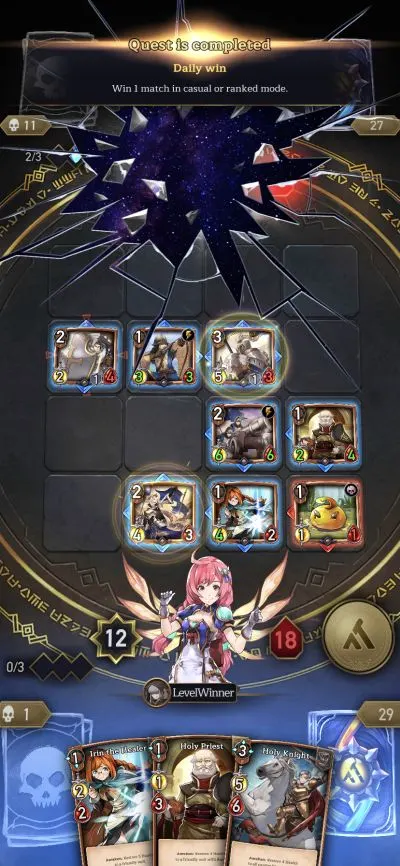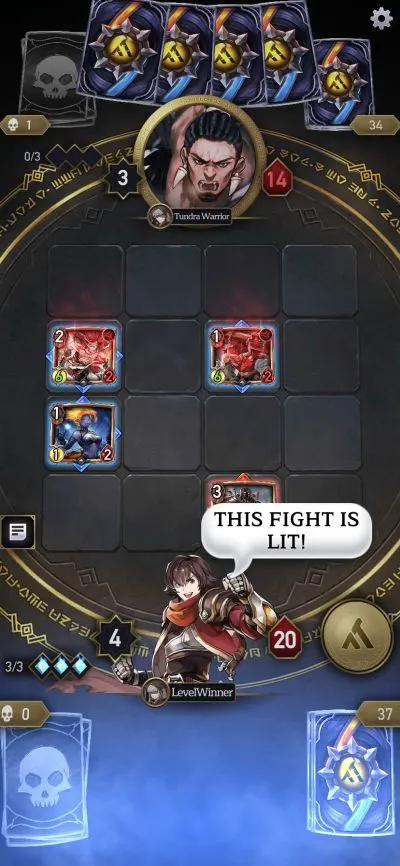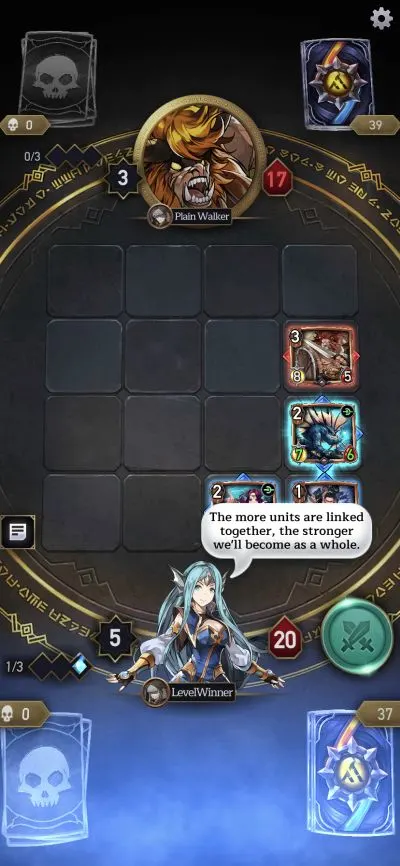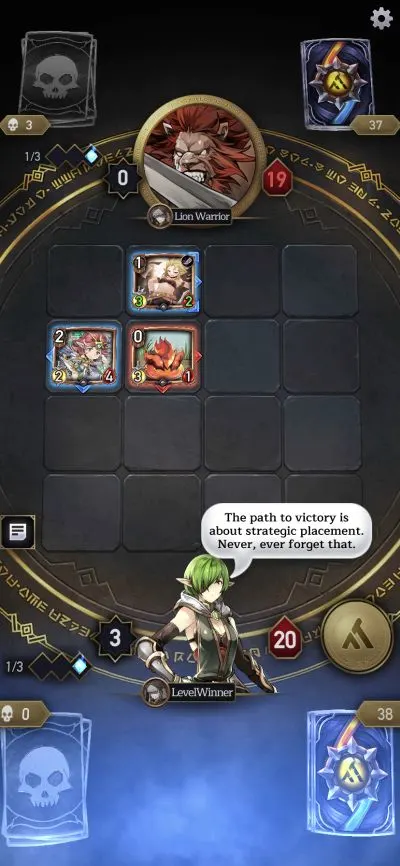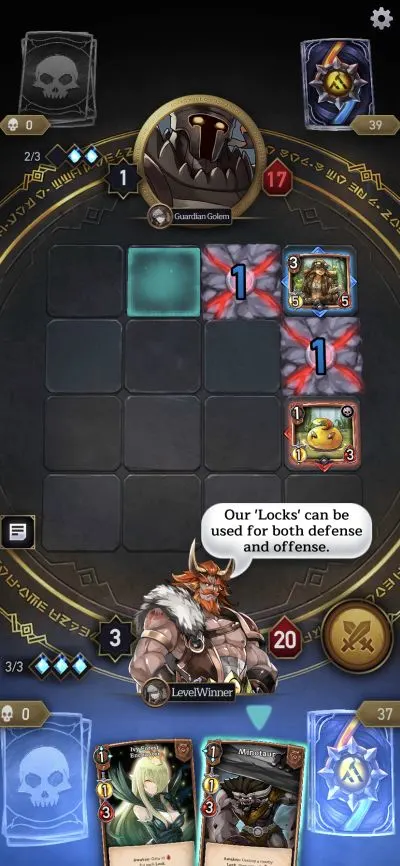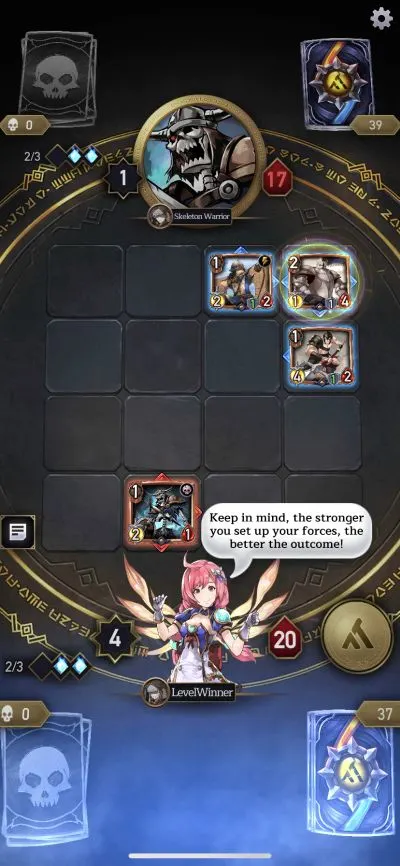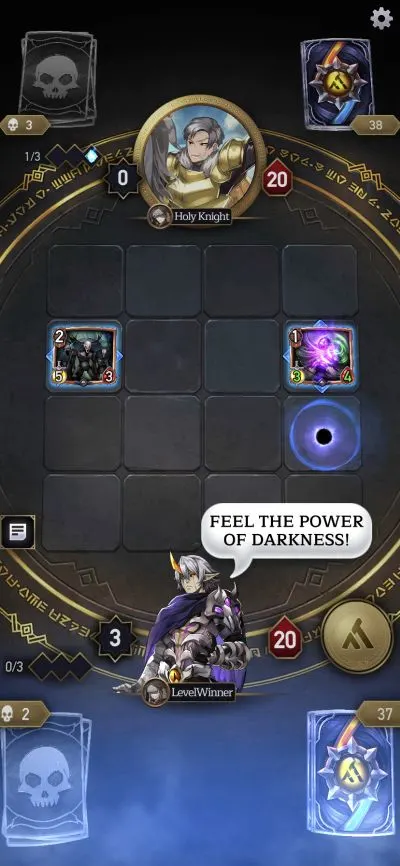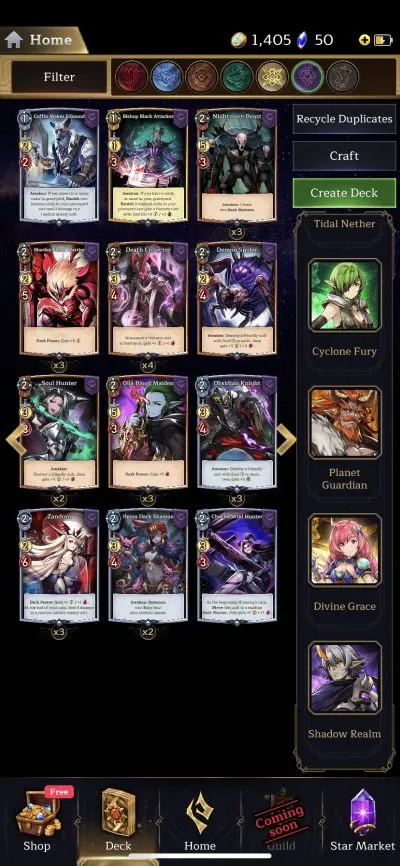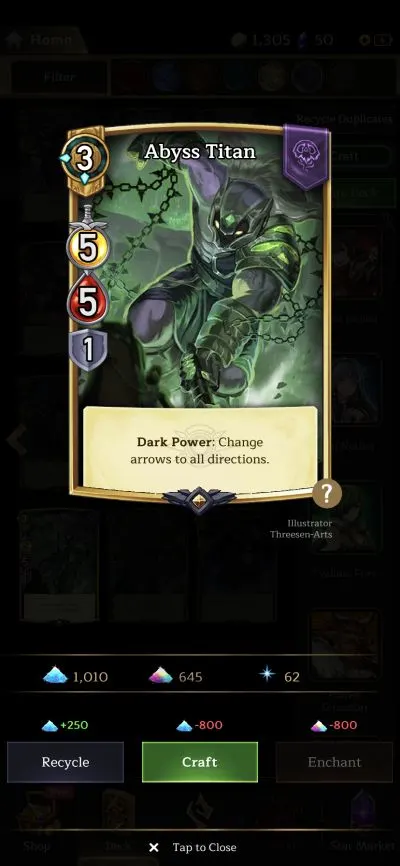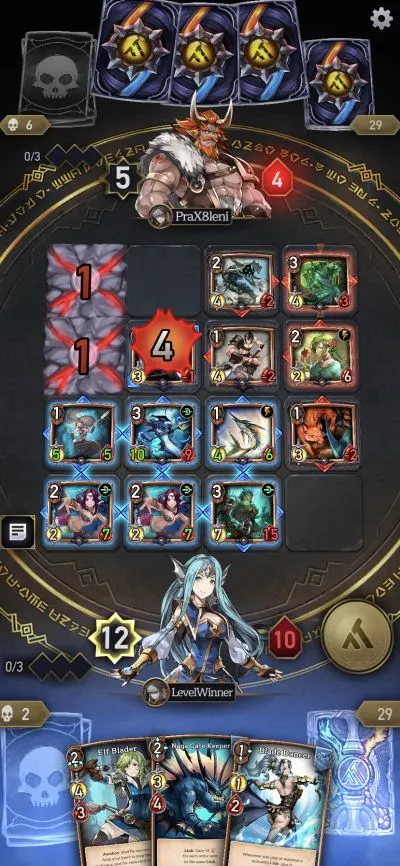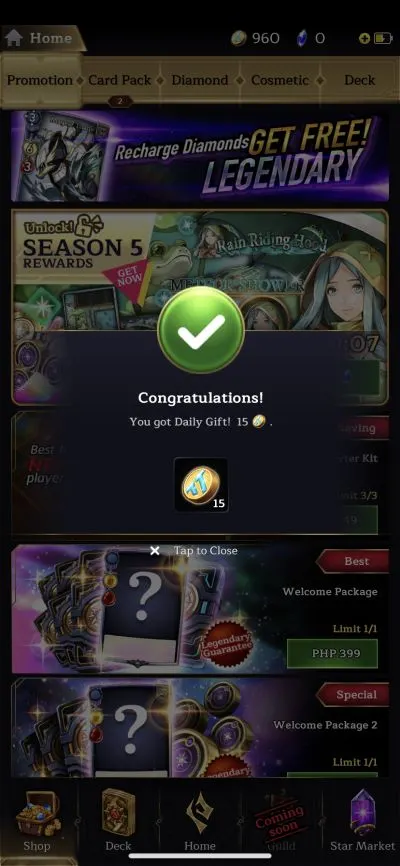Athenion: Tactical CCG combines collectible card game and board game elements for a highly customizable and diverse experience that offers a fresh take on the genre.
Going up against the likes of Hearthstone and Magic: The Gathering Arena, Athenion borrows some of the popular aspects of the card game genre and injects new mechanics to provide a unique way of collecting cards, building decks, and engaging in battle against other players.
Athenion is a free-to-play title, which means that players who spend real-world money will have more chances of acquiring powerful cards from digital packs. However, investing cash is not a requirement, as the game is very generous in handing out free packs, especially for those who spend time on playing matches and chasing goals.
For card game fans who are looking for something more dynamic while maintaining the collecting aspect of the genre, look no further than Athenion. With a battle system that focuses on strategy more than the cards that you have in your possession, and a rewards system that keeps the digital packs coming, Athenion is a great option for rookies and veterans alike to collectible card games.
If you are looking to build a powerful deck and dominate your enemies, then stay with us and read our Athenion: Tactical CCG beginner’s guide below for some useful tips, tricks and strategies!
1. Learn The Rules
The numbers on the cards’ sides and a playing board calls to mind Triple Triad, the card game in Final Fantasy VIII for the PlayStation. Athenion, however, takes that formula and adds multiple new mechanics to create a much more exciting game.
The objective of the game is to take your opponent’s life total from 30 down to zero. Players start the game with five cards in hand, and at the beginning of each turn, they draw as many cards as needed to go back up to five in hand. Players are also given three Soul points, which also replenish at the start of each turn.
Playing cards use up Soul points, and the cost for each card, also known as its Soul, is shown in the upper-left corner. This means that in a turn, you can play three 1-Soul cards, one 2-Soul card and one 1-Soul card, or one 3-Soul card. Any unused Soul points at the end of each turn are not carried over to the player’s next turn.
The cards, which represent various characters and creatures, come with other numbers, primarily a number on a yellow sword icon and another number on a red blood icon. These represent the card’s power and health. The cards also come with blue arrows at the sides and corners, which dictate the directions where the card can attack. The health of your opponent’s card will decrease according to your card’s power after an attack, and once a card’s health reaches zero, it is removed from the board and sent to the graveyard.
Attacking your opponents’ cards, however, will not bring down their life points. That happens at the start of your turn, when you launch an attack based on the Soul that you have accumulated on the board. This means that any cards you play will have to survive through your opponent’s turn before they can contribute their Soul to attack your enemy’s life points.
In Athenion, your strategy will revolve around keeping as many of your cards on the board as possible to increase Soul and the damage that you deal to your opponents, while eliminating as many of your opponents’ cards as you can to keep their Soul at a minimum.
2. Start With Casual Matches
Upon launching Athenion, you may feel overwhelmed with all the things that you have to learn about the game. Fortunately, the tutorials will get you through the early stages, and the Missions will guide you in understanding everything about the game.
To jump-start your learning, it is highly recommended to play casual matches, using one of the pre-constructed decks offered by the game. At first, you shouldn’t worry about customizing your deck or winning in all matches – your priority should be getting a feel for the game, its mechanics, and the strategies that you will need to apply, depending on the faction.
The casual matches, along with the Prologue stages, will help you learn the basic keywords in the game as well as the unique keywords for each faction. It will be great if you can win a match here and there, as that will help progress your Missions, but ultimately, the point of starting with casual matches is to have you hit the ground running.
3. Choose Your Faction Wisely
There are six factions in Athenion, and each faction has its own unique way of playing the game.
Flame Legion
The Flame Legion faction features a quick and aggressive playstyle with hard-hitting creatures that may become even more powerful with the Berserk ability, which triggers to grant different kinds of bonuses when the cards have been damaged but not killed.
Tidal Nether
The Tidal Nether faction focuses on defending your creatures from being taken off the board. The primary mechanic of the faction is Link, which grants your cards bonuses whenever they have arrows facing each other, growing stronger as more cards are added to the Link chain.
Cyclone Fury
The Cyclone Fury faction specializes in the strategic placement of cards on the board. The Move mechanic changes the positions of cards and allows them to attack again, and the Backstab mechanic grants bonuses if your card is attacking an opponent’s card at a side where they do not have an arrow.
Planet Guardian
The Planet Guardian faction aims to limit the options of opponents through the Lock mechanic, which blocks certain spots on the board for a limited time. The faction comes with cards that feed on Locks, or grow stronger for every Lock on the board.
Divine Grace
The Divine Grace faction draws strength from numbers, as it aims to overwhelm opponents by stacking bonuses on top of each other. This is supported by the Aura mechanic, which grants different kinds of bonuses to units near a card with the ability.
Shadow Realm
The Shadow Realm faction utilizes the undead for a never-ending horde of monsters. The primary mechanic of the faction is Dark Matter, which players may place through various ways on the board to trigger bonuses for cards on those spots.
By playing in casual matches, you should have an idea on which of the factions appeal the most to you. At this point, you should make a decision on two or three factions that you want to focus on, depending on the unique keywords that appeal to you and the cards that you have available, after opening the packs given for free to new players.
4. Deck Construction Tips
Once you have chosen the factions that you want to focus on, it is time to start building your own decks. Each deck consists of a total of 40 cards, up to three copies for each card, and all coming from the faction that you choose or the Mercenary cards, which may be added to any deck.
Before you begin, you should take a look at all the cards in your collection, and pick out the cards or mechanics that you want to build around. Starting a deck with such a focus will ensure that you have enough cards that will carry out your chosen strategy, and enough cards to support it.
For example, if you want to focus on Flame Legion’s Berserk mechanic, you should have enough cards in your decks with Berserk, as well as cards that deal damage to your own units to trigger the Berserk bonuses so that you will not rely on your opponents to trigger them for you. Another example is the Aura mechanic of Divine Grace, which should be supported by cards that have abilities that trigger when under an Aura effect, as it will be tough to rely on just the Aura bonuses alone.
So that you will have a lot of cards to work with, acquiring and opening packs should be a priority. In addition to the free packs that new players receive, completing Missions and progressing up the Battle Pass will get you more packs. You should open the packs as soon as you receive them, so that you can keep on upgrading your decks or building new ones.
You can also acquire more cards through the Craft option in the Deck menu, which allows you to fill out the cards that you need in a deck. This will consume Fragments, which you can acquire from the Missions and Battle Pass.
You should also take advantage of the Recycle Duplicates option, which converts copies of cards beyond the maximum three in each deck into Fragments. After opening multiple packs, you should always check the Recycle Duplicates screen if there are any extras that you can turn into Fragments.
Lastly, you should keep an eye on the information at the upper part of the deck construction screen. It will show you how many cards of each cost are in the deck. While 3-Soul cards are powerful, you should limit their number in your deck as they will slow you down considerably if you are forced to only play one card each turn. You should build your deck to have 1-Soul cards take up the most slots, followed by 2-Soul cards, then a few 3-Soul cards. This will make sure that you will be able to play multiple cards in most turns, which not only expands your board presence, but also lets you dig deeper into your deck so that you can access more cards that you need for your strategy.
5. Battle Tips
Athenion is a game of reactions, and the loser is usually the player who is not able to keep up in countering the opponent’s actions.
In battle, players should play aggressively by making sure that you maximize your Soul points each turn, which will build up your board presence and Soul and present multiple problems for your opponents. However, players should also play defensively by keeping the opponent’s Soul at a minimum. There needs to be a delicate balance between being aggressive and defensive, as being too aggressive may result in your opponents being able to answer your cards, while being too defensive may place your Soul too far behind your opponent’s.
One thing that players should remember is that attacks only trigger in one instance – when a card is added to the board. This will make the card that you played attack in all the directions of its arrows, but any nearby cards of your opponents that have arrows pointing back to your card will also attack. You can use this to your advantage by placing cards in positions where most of its arrows are exposed, so that when the opponent places a new card near it, there is a good chance that it will be attacked by your card.
In choosing which cards of the opponent to defeat, the ideal targets are those with higher Soul. This is because, no matter how many opposing cards you send to the graveyard, your life total will always be in danger if your opponent is able to keep a steady number of Soul on the board.
All that said, there is no single strategy in Athenion that will work for all factions and deck builds, so the best tip for figuring out how to win battles is to keep practicing. You will lose a lot of games along the way, and you will likely need to make many adjustments to your deck, but there is nothing else that can teach you how to win with your chosen faction than experience.
6. Seek Rewards
In Athenion, the most important reward are packs, as they give you the best chance of acquiring more powerful cards, though at a random rate. There are other kinds of rewards though, and making sure that you get as many of them as you can will help you build your dream deck as fast as possible.
The Daily Gift gives you various rewards just by logging into the game, progressing into better gifts as your streak grows longer.
The Battle Pass, meanwhile, allows you to move up the ranks by collecting BP from completing certain tasks and missions.
Players are also able to acquire rewards from leveling up their character and their chosen factions, in addition to completing various in-game achievements and filling out their card collection.
To make the most out of Athenion, you should chase these goals, especially the ones that are closest to your reach. Some goals, meanwhile, are achieved just as you play the game. Before long, you will have enough rewards, cards, and experience to become an Athenion master.
There you have it! This wraps up our beginner’s guide for Athenion: Tactical CCG. If you have come across any other tips or strategies, please let us know in the comments below!
